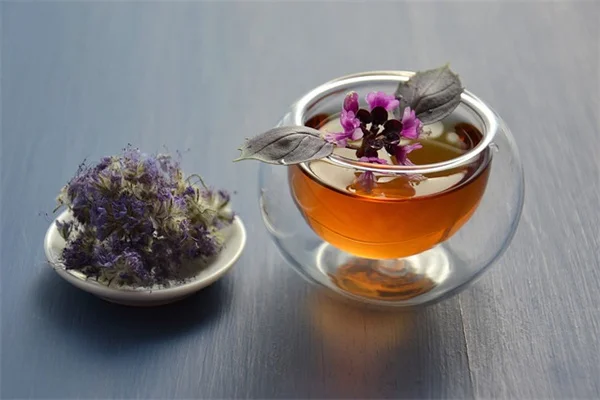Probiotic Soda: Gut Health Hero or Hype? What Experts Say
Advertisement
Are probiotic and prebiotic sodas actually good for your gut? The short answer is: they might help a little, but they're not magic bullets. These trendy drinks like Poppi and Olipop can contribute to your daily fiber intake and might support digestion, but experts warn they shouldn't replace whole foods in your diet. Here's the deal - while these fizzy drinks contain gut-friendly ingredients, many nutritionists like Marilia Chamon point out that real gut health comes from a balanced diet, not just what's in your soda can. Some brands even use inulin fiber that can cause bloating - the exact problem they claim to solve! I've been researching this trend extensively, and what's clear is that while probiotic sodas might be a better choice than regular soda, they're not a cure-all. The science is still developing, and as Karen Reyes notes, we need more research on these specific beverage formats. So before you stock up, let's look at what these drinks can - and can't - do for your health.
E.g. :AI Music App Boosts Mood: Science-Backed Playlists That Work
- 1、What's the Buzz About Probiotic Soda?
- 2、Gut Health 101: Prebiotics vs. Probiotics
- 3、The Rise of Gut-Friendly Sodas
- 4、Do Probiotic Sodas Actually Work?
- 5、What Science Really Says
- 6、Better Ways to Boost Gut Health
- 7、Making Smart Choices
- 8、The Hidden World of Fermentation
- 9、The Sugar Dilemma in Probiotic Drinks
- 10、The Psychology Behind Health Trends
- 11、The Environmental Impact of Probiotic Drinks
- 12、The Future of Gut Health Products
- 13、FAQs
What's the Buzz About Probiotic Soda?
Why Everyone's Talking About These Fizzy Drinks
Have you noticed those colorful probiotic soda cans popping up everywhere? Poppi, Olipop, and Culture Pop are becoming household names, and TikTok can't stop talking about them - with over 119 million views for #probioticsoda!
These bubbly drinks promise a sweet deal: less sugar than regular soda plus gut-friendly ingredients. But here's the million-dollar question: Are they actually good for you, or just another health fad? Let's pop the top on this trend and see what's really inside.
Gut Health 101: Prebiotics vs. Probiotics
The Dynamic Duo in Your Digestive System
Imagine your gut as a bustling city. Probiotics are the friendly residents - live bacteria that keep everything running smoothly. Prebiotics? They're like the food delivery service that keeps these good bacteria well-fed and multiplying.
Here's a quick comparison to help you remember:
| Probiotics | Prebiotics | |
|---|---|---|
| What They Are | Live microorganisms | Indigestible fibers |
| Their Job | Balance gut bacteria | Feed good bacteria |
| Where to Find Them | Yogurt, kimchi, kefir | Garlic, onions, bananas |
 Photos provided by pixabay
Photos provided by pixabay
Why Your Gut Needs Both
Think of it like a garden. You can plant all the seeds (probiotics) you want, but without fertilizer (prebiotics), they won't grow well. Together, they help with everything from digestion to immune function - and maybe even your mood!
The Rise of Gut-Friendly Sodas
Why These Drinks Are Suddenly Everywhere
Marilia Chamon, a gut health expert, isn't surprised by the probiotic soda craze. "People are finally realizing that gut health affects everything from digestion to mental health," she explains. And let's be honest - drinking a tasty soda sounds way easier than eating another plate of sauerkraut!
But here's something interesting: Are we just falling for clever marketing? Many of these drinks contain inulin (a prebiotic fiber) that can actually cause bloating - the very thing they claim to reduce! Talk about irony.
The Convenience Factor
Let's face it - we're all looking for quick health fixes. Probiotic sodas offer the promise of gut health in a convenient, ready-to-drink format. But remember what your mom always said: "If it sounds too good to be true..."
Do Probiotic Sodas Actually Work?
 Photos provided by pixabay
Photos provided by pixabay
Why Your Gut Needs Both
Karen Reyes, a nutritionist, points out some possible perks:
- May help meet daily fiber needs (most Americans fall short)
- Could support immune function
- Might even boost mood by influencing serotonin production
A 2016 study in Nutrition Bulletin found probiotics could help with conditions like IBS. But here's the catch - not all probiotic strains are created equal. It's like assuming all exercise is the same - yoga and weightlifting give very different results!
The Not-So-Sweet Truth
Before you stock up, consider these potential downsides:
- Bloating and gas (especially for those with sensitive guts)
- Some contain surprisingly high sugar content
- May cause diarrhea in some people
Chamon warns: "If you're eating mostly processed foods, these sodas might help a little. But they're no substitute for real, whole foods." It's like putting a band-aid on a broken leg!
What Science Really Says
The Current State of Research
Here's the sobering truth: we're still learning about probiotics' effects. Most studies use supplements or foods - not sodas. It's like assuming coffee and energy drinks work the same way because they both contain caffeine!
Reyes notes: "The research is promising but developing. We need more studies specifically on these beverage formats." So while that influencer might swear by their daily probiotic soda, the science isn't quite there yet.
 Photos provided by pixabay
Photos provided by pixabay
Why Your Gut Needs Both
If you do try them, look for:
- Brands with natural ingredients
- No added sugars
- Specific probiotic strains (not just "contains probiotics")
And remember - moderation is key. Even water can be dangerous if you drink too much!
Better Ways to Boost Gut Health
Foods That Actually Help
Want real gut health benefits? Try these instead:
- Fermented foods (yogurt, kefir, kimchi)
- High-fiber fruits and vegetables
- Whole grains and legumes
The Mediterranean diet gets rave reviews from researchers. As Chamon says: "No single food or drink can replace a varied, balanced diet." It's about your overall pattern, not magic bullets.
Lifestyle Factors Matter Too
Your gut health isn't just about what you eat:
- Manage stress (yes, it affects your digestion!)
- Get enough sleep
- Stay active
Think of it like a car - even the best fuel won't help if you never change the oil or let the engine rest!
Making Smart Choices
When Probiotic Sodas Might Make Sense
These drinks could be helpful if:
- You're transitioning to healthier habits
- You struggle to get enough fiber
- You're looking for a soda alternative
But they shouldn't be your primary gut health strategy. As my grandma used to say: "Everything in moderation - including moderation!"
Red Flags to Watch For
Be skeptical of products that:
- Make outrageous health claims
- Don't list specific probiotic strains
- Contain as much sugar as regular soda
Remember: if it sounds like a miracle cure, it probably isn't. Real health doesn't come in a can!
The Hidden World of Fermentation
Ancient Wisdom Meets Modern Science
You know what's wild? Our ancestors were onto something with fermentation long before we had fancy probiotic sodas. Every culture has its own fermented specialty - from Korean kimchi to German sauerkraut. These traditional foods didn't just preserve veggies; they packed a powerful probiotic punch!
Here's a fun fact that'll make you think twice: the average jar of homemade fermented pickles contains about 10 billion CFUs (colony-forming units) of probiotics. That's more than most probiotic supplements! Makes you wonder why we're spending $4 on a can of soda when grandma's pickle recipe does the job better, right?
The Art of Home Fermentation
Want to try your hand at this ancient practice? It's easier than you think! All you need is:
- Fresh vegetables (cabbage works great)
- Salt and spices
- A clean jar
- Patience (about 3-7 days)
The best part? You can customize flavors to your taste. Add garlic for kick, carrots for sweetness, or even chili flakes if you're feeling adventurous. Your gut microbiome will thank you for this personalized probiotic party!
The Sugar Dilemma in Probiotic Drinks
Reading Between the Nutrition Labels
Let's play a quick game. Grab two cans - one regular soda, one probiotic soda. Now check the sugar content. Surprise! Some "healthy" probiotic drinks contain nearly as much sugar as their conventional counterparts. That's like putting a salad on top of a cheeseburger and calling it health food!
Here's a reality check: your body processes sugar the same way, whether it comes from a "health" drink or a candy bar. Excess sugar can actually feed the bad bacteria in your gut, potentially undoing any probiotic benefits. Talk about one step forward, two steps back!
Smart Swaps for Sweet Cravings
If you're craving something fizzy and sweet, try these alternatives:
| Drink Option | Sugar Content | Probiotic Content |
|---|---|---|
| Kombucha | 2-6g per serving | High |
| Water Kefir | 3-8g per serving | Very High |
| Probiotic Soda | 5-15g per serving | Variable |
See how kombucha and water kefir often offer more probiotics with less sugar? That's what I call a win-win situation for your taste buds and your gut!
The Psychology Behind Health Trends
Why We Fall for Quick Fixes
Ever notice how health trends come and go like fashion? One year it's juice cleanses, next it's probiotic sodas. Our brains are wired to seek simple solutions to complex problems. Drinking a can feels easier than overhauling your entire diet - even if the latter works better!
Here's something to chew on: companies spend millions making us feel like we need their products. They tap into our desires for better health, convenience, and that magical "one simple trick." But real health doesn't work that way - it's about consistent small choices, not miracle products.
Building Sustainable Habits
Instead of jumping on every trend, try this approach:
- Add one serving of fermented food daily
- Swap one sugary drink for herbal tea or infused water
- Take the stairs instead of the elevator
Small changes add up over time. As my yoga instructor says: "You don't have to be extreme - just consistent!" That's how you build habits that actually last beyond the next TikTok trend.
The Environmental Impact of Probiotic Drinks
Packaging Problems
Let's talk about the elephant in the room: all those cans and bottles. Even "healthy" drinks create waste. Aluminum cans are recyclable, but only about 50% actually get recycled in the U.S. The rest? Landfills. Oceans. Not exactly gut-friendly for Mother Earth!
Here's a thought: traditional fermented foods often use reusable containers. My Korean neighbor has been using the same kimchi crock for 20 years! Maybe our ancestors knew more about sustainability than we give them credit for.
Making Eco-Friendly Choices
If you do buy probiotic drinks:
- Choose brands with recycled packaging
- Buy larger containers to reduce waste
- Recycle properly (rinse those cans!)
Better yet? Make your own fermented drinks at home. It's cheaper, healthier, and leaves virtually no packaging waste. Plus, you get bragging rights when friends ask about your fancy homemade kombucha!
The Future of Gut Health Products
What's Next in Probiotic Innovation
The gut health market isn't slowing down anytime soon. Researchers are exploring exciting new frontiers like:
- Personalized probiotics based on your microbiome
- Probiotic sprays for skin health
- Even probiotic-infused chocolates (yes, please!)
But here's the million-dollar question: Will these innovations actually improve our health, or just give us more ways to avoid eating vegetables? Only time - and rigorous science - will tell. In the meantime, maybe we should all just eat more sauerkraut!
Staying Grounded in Science
As new products hit shelves, remember:
- Flashy packaging doesn't equal better health
- Traditional foods have stood the test of time
- Your body knows what real nourishment feels like
At the end of the day, no amount of trendy drinks can replace the basics: whole foods, movement, and connection. Now if you'll excuse me, I have some homemade kefir waiting in my fridge!
E.g. :Gut check: Are prebiotic and probiotic sodas better for you than ...
FAQs
Q: What exactly are probiotic and prebiotic sodas?
A: Probiotic and prebiotic sodas are the new kids on the beverage block, combining the fizz you love with gut-friendly ingredients. These drinks typically contain live cultures (probiotics) and special fibers (prebiotics) that feed your good gut bacteria. Popular brands like Poppi and Olipop use ingredients like apple cider vinegar and chicory root fiber to create what they claim are healthier soda alternatives. While they do offer some benefits over traditional sodas - like less sugar and added fiber - it's important to remember they're still processed beverages. We recommend checking labels carefully, as some contain as much sugar as regular soda!
Q: Can drinking probiotic soda improve my digestion?
A: Here's what we know: probiotic sodas might help some people with digestion, but results vary widely. The probiotics in these drinks could potentially support gut balance, while the prebiotic fibers may help feed your good bacteria. However, many nutrition experts warn that the probiotic strains in sodas often aren't as potent or targeted as those in supplements or fermented foods. Plus, some people experience bloating or gas from the prebiotic fibers used. If you're struggling with digestive issues, we'd suggest focusing first on whole food sources of probiotics like yogurt and kimchi before relying on soda for gut health benefits.
Q: Are there any risks to drinking probiotic sodas regularly?
A: While generally safe for most people, probiotic sodas do come with some potential downsides we should mention. First, some brands pack surprising amounts of sugar - defeating their health halo. Second, the prebiotic fibers (often inulin) can cause bloating, gas, or diarrhea, especially if you have IBS or a sensitive gut. Third, there's limited research on long-term effects of consuming these beverages daily. Our advice? Enjoy them occasionally as a better-for-you treat, not as a daily health elixir. And always check with your doctor if you have digestive conditions before making them a regular habit.
Q: How do probiotic sodas compare to traditional fermented drinks like kombucha?
A: Great question! While both are fermented beverages, there are key differences we should highlight. Kombucha undergoes natural fermentation, creating live cultures and organic acids. Most probiotic sodas use added probiotics and prebiotics instead of traditional fermentation. Kombucha tends to be lower in sugar and contains beneficial acids, but its strong flavor isn't for everyone. Probiotic sodas win on taste and accessibility but often contain more additives. We suggest trying both to see what works for your taste buds and digestion - just remember neither should replace water as your primary beverage!
Q: What should I look for when choosing a probiotic soda?
A: When browsing the probiotic soda aisle, we recommend looking for three key things: First, check that sugar content is under 5g per serving - some "healthy" brands sneak in as much as regular soda! Second, look for specific probiotic strains listed (not just "contains probiotics"). Third, opt for brands using natural ingredients without artificial sweeteners. Our pro tip? Start with single-serve cans before committing to a case, as these drinks can taste quite different from traditional soda. And remember - no matter how healthy the claims, these should complement your diet, not become its foundation!


